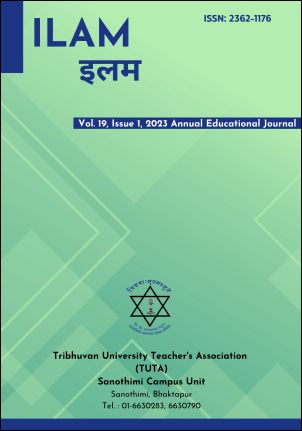Evolving a Model of Critical Pedagogy to Deconstruct the Hegemonic Culture of the Conventional Teacher Centered Social Studies Classroom
DOI:
https://doi.org/10.3126/ilam.v19i1.58599Keywords:
Conventional Teacher Centered Teaching, Critical Pedagogy, Hegemonic Cultural, Social Studies, Transformative Teaching LearningAbstract
Hegemony is a dominant ideology widely used in the educational field. But its adherents do not seem to be aware of its influence. When I encountered this ideology, I became excited and went back to the experiences I gained while studying social studies at the school level and the experiences I gained while teaching social studies at the school level. I carried out this study by incorporating my own experiences and the experiences of three renowned professors of social studies who have experienced hegemonic culture in their conventional teacher centered classroom. Art-based critical auto-ethnographic research methodology has been adopted in this study. In this research, I identified six different aspects of cultural hegemony that negatively impacted my social studies experiences, namely: traditional teaching methods; curriculum content; teacher domination; competitive assessment; perfectionism; poor classroom environment. Another important aspect of this study is that I have also identified the fundamental aspects of critical pedagogy that I experienced while studying and teaching at school, namely transformative teachers, encouraging students to have a critical voice, using new forms of knowledge, and emphasizing ethics as central. The result of this academic self-study is a far-reaching strategy for transforming the teaching of social studies. This strategy is divided into three steps i.e. before the implementation of the lesson, implementation of the lesson, and reflection. The second step of this strategy is the implementation phase. The implemented step can be divided in five sections such as structured overview and group formation, community contact and critical analysis, open dialogue for active engagement, confronting power and exposing hegemony, and evaluation of the whole process. This vision can be adapted and implemented by innovative teachers who want to enliven their social studies classrooms with more relevant, meaningful and stimulating learning experiences.




